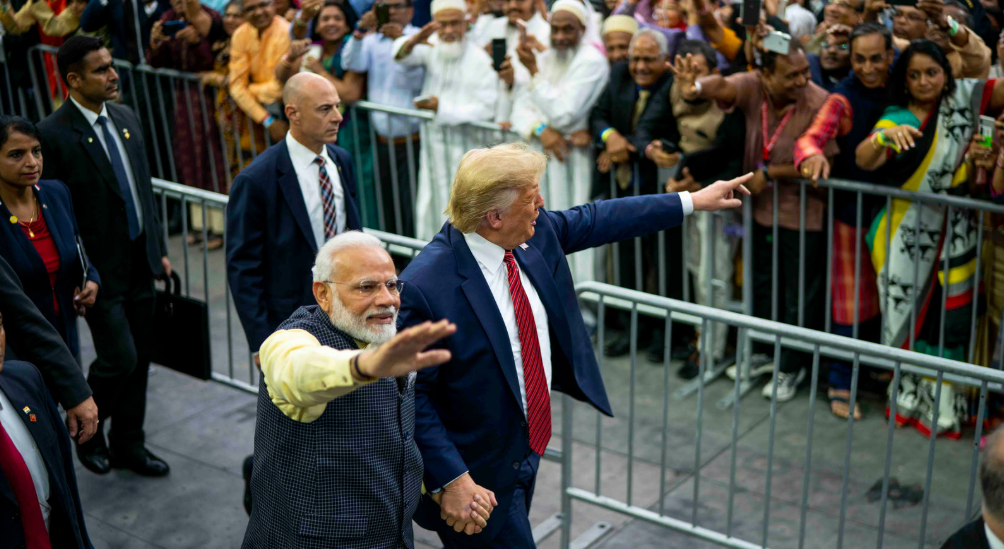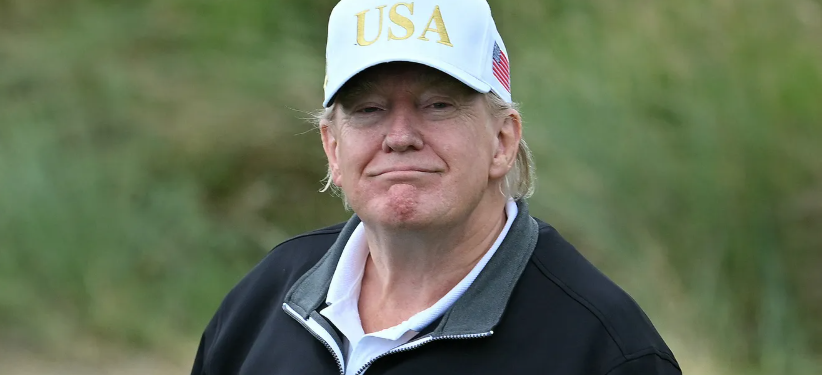need full description of important news
Major headlines from early September 2025 include political unrest in Nepal, a new Vice President election in India, the ousting of France’s Prime Minister, and international trade tensions surrounding India and China
.
World news
- Nepal protests and government response: Protests in Nepal turned violent, leaving at least 19 dead, after the government banned 26 social media platforms for failing to register. In response,
- the government lifted the ban and the Home Minister resigned amidst public outrage over the state violence and government corruption.
- French government instability: Following a no-confidence vote, French Prime Minister François Bayrou was ousted. The vote was triggered by Bayrou’s own efforts to secure support for his strategy to cut the country’s national deficit.
- Escalating Mideast conflict: A bus stop attack by Palestinian gunmen in Jerusalem killed six Israelis. In the Gaza Strip, the UN’s emergency relief chief warned that famine would likely spread south by the end of September without an immediate influx of aid.
- Russian military actions: Ukraine reported that Russia launched its largest drone attack yet, consisting of over 500 drones and missiles, mainly targeting the western part of the country.
- Russian President Vladimir Putin defended the invasion at a Shanghai Cooperation Organisation (SCO) meeting in China.
- US–India trade tensions: Trade relations between the U.S., India, and China remain strained.
- Trump’s comments: At the SCO summit, former U.S. President Donald Trump claimed that India and Russia had been “lost” to “darkest China”.
- Tariff threats: A Trump aide criticized India’s imports of Russian oil. Ukrainian President Volodymyr Zelenskyy also expressed support for the U.S. tariffs against India over its Russian oil trade.
- EU and India trade talks: European Union negotiators headed to Delhi to advance Free Trade Agreement talks, even as India faces increasing pressure over its trade practices.
National news (India)
- Vice President election: India’s Parliament is holding an election for the Vice President. The ruling NDA candidate, C.P. Radhakrishnan, is heavily favored to win against the opposition’s INDIA bloc candidate, B. Sudershan Reddy.
- Monsoon floods: After severe monsoon rains, Prime Minister Narendra Modi is visiting the flood-affected areas of Punjab and Himachal Pradesh. Officials have reported severe flooding at 25 river monitoring stations across India.
- Technology and digital initiatives:
- Digital payments: The National Payments Corporation of India (NPCI) has increased the UPI transaction limit to ₹10 lakh for specific high-value payments.
- Consumer protection: New voluntary silver hallmarking rules, based on the Hallmarking Unique ID (HUID) system, were introduced to improve traceability and purity verification.
- Legal and political developments:
- AAP MLA detained: Mehraj Malik, the Aam Aadmi Party’s J&K chief, was detained under the Public Safety Act for allegedly disturbing public order, leading to condemnations from other political leaders.
- Elgar Parishad case: The Supreme Court is scheduled to hear the bail plea of activist Mahesh Raut.
Technology and business
- Major tech trends for 2025: Industry analysis by Gartner, Capgemini, and others identifies several key technological trends for 2025, primarily driven by advancements in artificial intelligence. These trends include:
- Agentic AI: AI systems capable of autonomous planning and execution to achieve user-defined goals.
- Adaptive AI: Systems that can automatically adjust their behavior in real time based on new data or conditions.
- Generative AI: The continued evolution of generative AI tools for creative and analytical tasks.
- Emerging technologies: Other important technologies include:
- Quantum computing: Continued advancements in quantum technology, with more companies experimenting with limited use cases.
- Neuromorphic computing: Developing computer chips that mimic the human brain for more energy-efficient and faster processing.
- Sustainable technology: A growing focus on green energy, including advancements in nuclear energy like Small Modular Reactors (SMRs) to meet the massive power demands of AI.
- Internet infrastructure: Undersea cable cuts in the Red Sea disrupted internet services across Asia, the Middle East, and Africa.
🌍 Global Headlines Today: Economy, Crime, and International Affairs
📌 Introduction
Every day, the world delivers a fresh set of stories that shape our understanding of politics, society, and the economy. Some stories pass quickly, while others spark debates that last for weeks. Over the past few days, three very different developments have caught the public’s eye.
In the United States, new figures suggest the country’s job market might not be as strong as once believed. In India’s capital, Delhi police cracked open a stolen phone racket that revealed how deeply such crimes run. And in Australia, tragedy struck on the beaches even as the government pushed forward with new political and environmental strategies.
These headlines might appear unrelated, but together they offer a glimpse of the challenges facing people around the world.
🇺🇸 U.S. Job Market Concerns
A Major Revision in Employment Data
For months, headlines in the U.S. spoke of steady job growth, but fresh data tells a different story. The Bureau of Labor Statistics is preparing to revise employment numbers, and early estimates suggest that the country may have overcounted by about 775,000 jobs.
If true, this would cut average monthly job gains from 165,000 to about 100,000. It doesn’t sound like much at first glance, but for the world’s largest economy, those numbers matter. They tell investors, workers, and policymakers whether the country is truly expanding—or quietly slowing down.
(Suggested image: A U.S. stock chart or employment graph.)
Why People Care
Jobs are more than just numbers on a spreadsheet. A weaker labor market means fewer opportunities for workers, more hesitation from businesses to expand, and growing anxiety among families who live paycheck to paycheck. Investors may also become cautious, which could ripple through the stock markets.
The political impact is just as important. With elections on the horizon, leaders will be pressed to explain why earlier reports painted such an optimistic picture. In many ways, this revision is not just about economics—it’s about trust.
A Bigger Picture
When people feel uncertain about their jobs, they naturally cut back on spending. That decision, multiplied across millions of households, reduces demand for goods and services. In other words, what starts as a statistical correction can quickly turn into a story about confidence, stability, and the future of the economy.

🇮🇳 Delhi Crime Story – Cracking a Phone Racket
A Brother-Sister Duo Caught
In a very different corner of the world, Delhi police recently made an unusual arrest. A brother and sister were found buying stolen mobile phones, and when authorities searched their stash, they recovered 82 devices. Out of those, 25 were directly linked to one man, Faiyaz, whose brother-in-law is still on the run.
The arrest exposed how organized crime operates in everyday life. A single phone snatched on the street doesn’t just disappear—it often enters a chain of buyers and sellers that eventually reaches large black markets.
(Suggested image: Police with seized phones.)
The Growing Threat of Mobile Theft
Smartphones have become essential, but that also makes them attractive targets. In many cities, thieves can make quick money by reselling them. Some phones are sold directly, while others are stripped for parts. As a result, what looks like petty theft often funds larger criminal networks.
For ordinary citizens, the impact is more than financial. Losing a phone often means losing personal photos, bank details, and other sensitive data. In some cases, stolen devices are even used in scams or fraud.
The Importance of Vigilance
Delhi police made it clear that such crimes will not be ignored. Their message was direct: if people report thefts quickly and cooperate with authorities, the chances of recovery rise significantly. For the public, it’s a reminder that vigilance matters—and that small crimes can connect to much larger stories.
🇦🇺 Australia News Round-Up
A Tragic Shark Attack
On the other side of the world, Australia faced heartbreak. Mercury Psillakis, a well-loved surfer, lost his life in a shark attack at Dee Why Beach. His family described him as “loving, devoted, and ridiculously fun.” The community mourned, and conversations about beach safety resurfaced almost immediately.
Shark attacks in Australia are rare but deeply unsettling. They reignite the age-old question: how do we balance human activity with the natural movements of marine life? Calls for better early-warning systems and stricter monitoring are already growing louder.
(Suggested image: Australian coastline with lifeguards.)
Politics in the Pacific

While the nation grieved, politics continued. Prime Minister Anthony Albanese traveled to Vanuatu with a clear mission: to strengthen Australia’s hand in the Pacific. His government unveiled a $500 million security and economic pact, a move seen as a direct counter to China’s rising influence in the region.
For Australia, the Pacific is more than geography—it’s strategy. By investing heavily, the country aims to reassure neighbors that it will remain a stable and supportive partner.
(Suggested image: Albanese meeting Pacific leaders.)
Environment and Business Updates
Australia also made waves with domestic policies. New environmental “no-go zones” were introduced to protect vulnerable ecosystems. In the education sector, the government merged national agencies in an effort to address teacher shortages.
Meanwhile, the corporate world saw two big headlines: retailer The Good Guys was fined AU$13.5 million for misleading credit promotions, and mining giant BHP agreed to pay AU$110 million over the Fundão Dam disaster from 2015.
Each story added another layer to a week that showed Australia balancing grief, politics, and accountability.
📌 Conclusion
Three very different headlines, yet each one offers lessons. In the United States, revised job numbers reminded people that statistics are not just about math—they reflect livelihoods and trust in leadership. In Delhi, a stolen phone racket revealed the hidden networks behind street-level crime. And in Australia, a tragic shark attack was followed by bold moves on the political and environmental front.
The common thread? Our world is more connected than ever. What happens in one place often influences decisions far away. News may begin locally, but its impact often stretches across oceans.

Top stories


French Government Ousted After Prime Minister Loses Confidence Vote

Benjamin Netanyahu warns Gaza City residents to leave now

‘Strongly condemn heinous terrorist attack’: PM Modi after six killed in Jerusalem gun attack

Democrats release suggestive birthday letter to Epstein purportedly signed by Trump, which he denies

World | Latest News & Updates
BBChttps://www.bbc.com › news › world
5 hours ago — Get all the latest news, live updates and content about the World from across the BBC.BBC WorldMiddle EastIndiaEurope
from google search news

Pingback: The Indian stock market remained mixed this week benchmark
Pingback: Steelers Dominate the NFL: The Powerful Rise of a Legendary Franchise 10